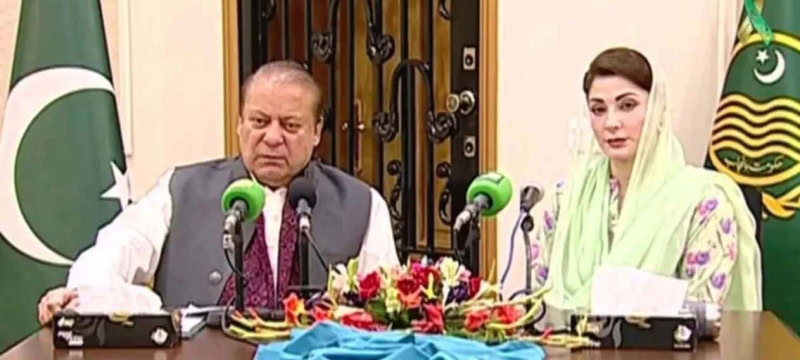Former Prime Minister Nawaz Sharif announced a major reduction in Electricity Bills for Punjab residents on Friday. During a press conference in Lahore, the Pakistan Muslim League-Nawaz (PML-N) leader revealed that consumers using up to 500 units of electricity in Punjab would receive a relief of Rs 14 per unit for the months of August and September.
Speaking alongside Punjab Chief Minister Maryam Nawaz, Sharif expressed concern over the ongoing economic difficulties, particularly the rising inflation and increasing electricity costs.
Read more: Bloomberg: Electricity Bills in Pakistan Now Exceed the Cost of House Rents
He reflected on the more stable economic conditions during his previous tenure, noting that inflation was under control, electricity bills were affordable, and the US dollar value was kept at Rs 104 for four years with low-interest rates.
Sharif criticized the previous Pakistan Tehreek-e-Insaf (PTI) government for the current economic challenges, asserting that those responsible should be held accountable.
He highlighted his administration’s achievements, including ending load-shedding by constructing power plants without increasing electricity prices.
He also praised Maryam Nawaz for her work in reducing the cost of essential commodities and improving public services in Punjab. Sharif recalled his government’s strategic successes, such as making Pakistan a nuclear power and freeing it from IMF dependence.
In addition to the electricity bill reduction, Sharif announced a Rs 700 billion investment in a solar panel project for Punjab. He urged the current government to continue taking measures to ease the public’s financial burden and to find sustainable solutions to the energy crisis.
This announcement is part of PML-N’s broader strategy to regain public support ahead of the upcoming elections, focusing on economic relief and stability.









